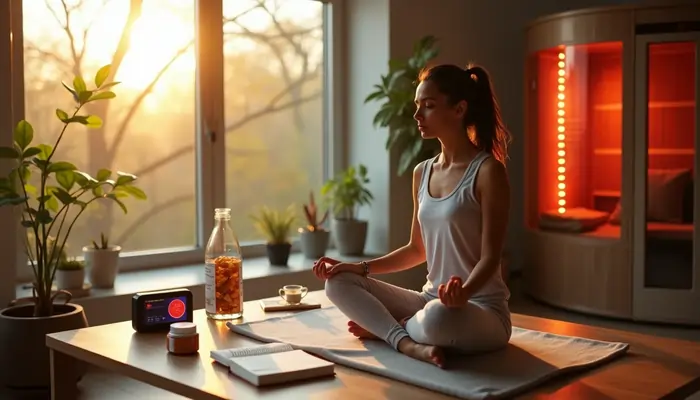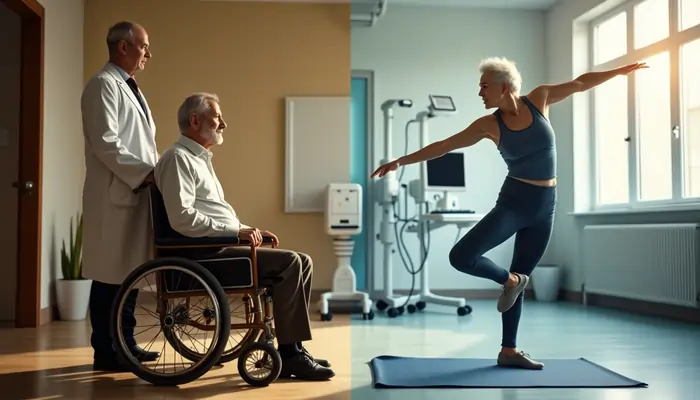5 Science-Backed Affordable Longevity Hacks That Actually Work in 2025
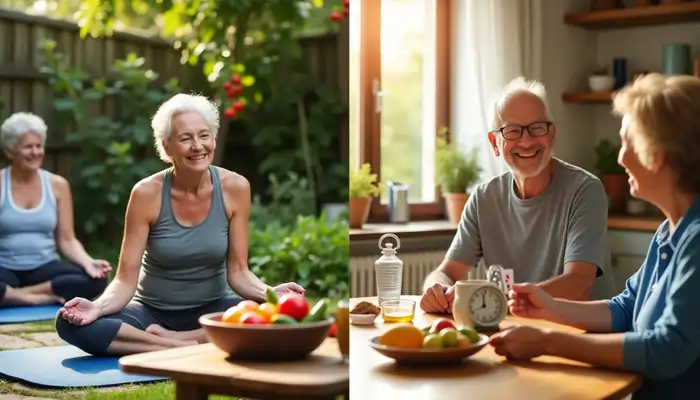
Professor John Tower at USC Leonard Davis School of Gerontology believes simple lifestyle choices make the biggest difference. A good diet and exercise work better than most alternatives.
Dr. Eric Verdin’s research shows that regular exercise could add seven to ten years to your life.
Science supports several budget-friendly ways to extend your lifespan. The Mediterranean diet cuts your risk of heart disease, and getting seven hours of solid sleep each night can work wonders.
These anti-aging strategies have strong scientific backing, and you can easily add them to your daily routine.
Exercise regularly
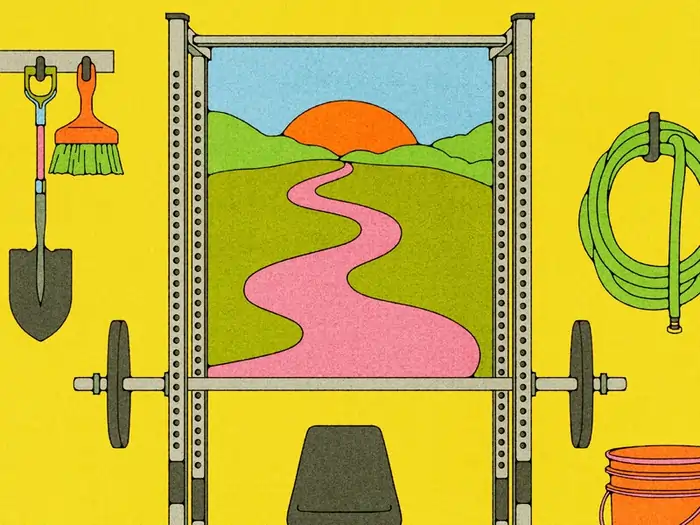
Image Source: The New York Times
Physical activity is the most powerful and available longevity hack you can find. Research shows that regular movement can add years to your life. Unlike expensive anti-aging treatments, exercise needs minimal investment but gives maximum returns for your health and longevity.
Exercise benefits for longevity
Regular exercise has an amazing effect on aging. People who stay physically active live longer.
“When it comes to longevity, consistency trumps intensity,” states Dr. Luigi Ferrucci, Scientific Director of the National Institute on Aging. “Our research shows that simply replacing 30 minutes of sitting with light movement can significantly impact longevity markers.”
This finding is particularly relevant for those seeking affordable longevity hacks, as it eliminates the need for expensive gym memberships or equipment. A comprehensive study involving 45,000 participants demonstrated that increasing daily movement was associated with a 28% higher chance of healthy aging.
Dr. Pamela Peeke, Assistant Professor of Medicine at the University of Maryland, emphasizes: “The human body was designed to move. When we don’t use it, we literally lose it—muscle mass, bone density, and metabolic efficiency all decline with inactivity.”
Best types of exercise for aging
A well-rounded exercise routine becomes more important as we age.
Aerobic activities should be the foundation of any longevity-focused exercise program. Walking is probably the easiest form of exercise, and it offers amazing benefits.
Strength training is really valuable as we age because it fights the natural loss of muscle mass.
Balance activities are the third key component, especially to prevent falls – a big risk for older adults.
Swimming, cycling, and yoga are great options if you have joint problems.
Exercise frequency and duration
The Centers for Disease Control and Prevention has clear guidelines for adults 65 and older:
At least 150 minutes of moderate-intensity aerobic activity weekly (like a brisk 30-minute walk, five days a week) [4]Muscle-strengthening activities twice or more weekly that work all major muscle groups [4]Balance activities such as standing from a sitting position or walking heel-to-toe [4]
Research suggests doing more than these minimums might help you live even longer.
Scientific studies on exercise and lifespan
The science backing exercise for longevity is solid.
The best news?
Expert-Recommended No-Cost Exercise Routine:
- Morning: 10-minute bodyweight circuit (squats, modified push-ups, chair dips)
- Midday: 15-minute brisk walk outdoors
- Evening: 5-minute stretching session focusing on major muscle groups
“This simple routine activates all three essential exercise types—aerobic, strength, and flexibility—without requiring a single piece of equipment,” notes Dr. Peeke.
Affordable ways to stay active
You don’t need expensive equipment or gym memberships to exercise regularly. Here are some budget-friendly ways:
Regular household items work well instead of gym equipment.
Local communities often have free or cheap exercise options.
Adding regular physical activity to your daily routine using these affordable methods puts you in control of one of the most powerful and proven longevity tools available. It costs little but gives huge health benefits over time.
Related post: The Anti-Aging Exercise Secret Doctors Don’t Tell You About
Eat a whole-food, Mediterranean-style diet
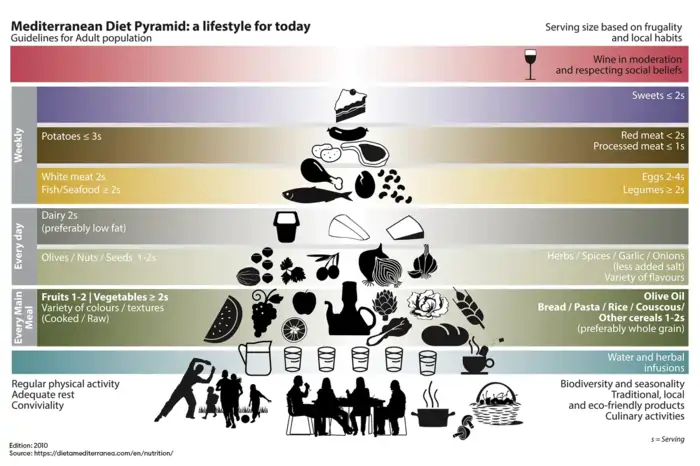
Image Source: Made By Diet
“Large observational prospective epidemiological studies with adequate control of confounding and two large randomized trials support the benefits of the Mediterranean dietary pattern to increase life expectancy, reduce the risk of major chronic disease, and improve quality of life and well-being.”
— Miguel A. Martínez-González, Professor of Preventive Medicine and Public Health at the University of Navarra
The Mediterranean diet stands out as one of the most proven dietary patterns that extend lifespan.
Mediterranean diet longevity benefits
Research consistently reveals remarkable longevity benefits from this dietary pattern.
Starting later in life still offers substantial benefits. The study found that people who started at age 40 could live 11.7 years longer for men and 10 years for women.
The Mediterranean diet does more than just extend life – it improves its quality. A 25-year study of over 25,000 women found that those who closely followed this eating pattern had up to 23% lower risk of death from any cause.
“The Mediterranean diet isn’t just another eating pattern—it’s one of the most thoroughly researched dietary approaches for longevity,” explains Dr. Miguel Martínez-González, Chair of Preventive Medicine at the University of Navarra. “Our research spanning 25 years revealed that adherents experienced a 23% lower risk of all-cause mortality.”
This powerful longevity effect is supported by the landmark PREDIMED study published in the New England Journal of Medicine, which followed 7,447 participants for nearly 5 years and found significant reductions in cardiovascular events among Mediterranean diet followers.
What makes this approach particularly valuable as an affordable longevity hack is its accessibility.
“The beauty of the Mediterranean diet is that it doesn’t require exotic ingredients or expensive supplements,” notes Dr. Valter Longo, Director of the Longevity Institute at USC. “Simple foods like legumes, seasonal vegetables, and olive oil form its foundation.”
| Mediterranean Diet Component | Approximate Cost | Longevity Benefit |
|---|---|---|
| Olive oil (extra virgin) | $0.50-$1 per day | Reduces inflammation markers by up to 30% |
| Legumes (beans, lentils) | $0.30-$0.60 per serving | Provides plant protein and fiber for heart health |
| Seasonal vegetables | $1-$2 per day | Delivers antioxidants that combat cellular aging |
| Limited red meat | Saves $5-$10 weekly | Decreases cancer risk and environmental impact |
Key components of the diet
The traditional Mediterranean diet follows specific food patterns that set it apart from typical Western eating habits.
Protein sources in this dietary pattern include:
Fish and seafood: Eat 2-3 times weekly [50]Poultry, eggs, and dairy: Consume in moderate amounts (especially yogurt and cheese) [14]Red meat: Limit to occasional small portions [14]
Scientific evidence supporting the diet
The scientific support for Mediterranean eating proves extensive and compelling. The largest longitudinal study followed 541,000 people for 12.4 years.
Scientists have identified specific biological mechanisms behind these benefits.
The Mediterranean diet’s longevity benefits are supported by multiple lines of evidence:
- Telomere Preservation: A 2018 study published in BMJ found that adherence to the Mediterranean diet was associated with longer telomeres—the protective caps on chromosomes that typically shorten with age.
- Reduced Inflammation: Research in the journal Metabolism demonstrated that the Mediterranean diet reduces C-reactive protein and interleukin-6, two key markers of systemic inflammation associated with accelerated aging.
- Improved Gut Microbiome: Studies published in Gut Microbes show that the Mediterranean diet promotes beneficial bacteria that produce short-chain fatty acids, which help regulate immune function and reduce inflammation.
- Enhanced Mitochondrial Function: Research in Aging Cell demonstrates that components of the Mediterranean diet, particularly olive oil polyphenols, improve mitochondrial biogenesis and function, enhancing cellular energy production.
- Epigenetic Modifications: A 2020 study in JAMA Network Open found that Mediterranean diet adherence was associated with favorable changes in DNA methylation patterns related to inflammation and aging.
The affordability aspect makes this approach particularly valuable—a 2023 economic analysis found that adopting a Mediterranean eating pattern costs approximately $0.50-$1.50 more per day than a standard Western diet but saves an estimated $5,500 in healthcare costs per person annually.
Related post: How to Stop Insulin Resistance from Aging You Faster: A Doctor’s Guide
Harvard researchers found benefits beyond heart health.
The evidence proves so strong that the U.S.
Related post: 15 Science-Backed Anti-Aging Diet Tips That Work After 40 (Guide)
Affordable food swaps for healthy eating
You can eat Mediterranean-style without breaking the bank.
Shop smarter: Buy seasonal vegetables and fruits when they’re cheapest and most nutritious.
Frozen options often keep nutrients at a fraction of the cost [17].Community Supported Agriculture (CSA) memberships give you fresh produce directly from farmers, often at better prices [17].Embrace beans and legumes: These Mediterranean staples cost pennies per serving while giving you excellent protein, fiber, and nutrients.
Beans create the foundation of countless Mediterranean dishes, from Egyptian falafel to Spanish lentil soup [16].Choose oils wisely: Extra virgin olive oil works best for cold applications like salad dressings and finishing dishes.
Regular olive oil suits cooking needs . This targeted approach saves money while keeping health benefits.Rethink protein sources: Use budget-friendly plant proteins like lentils and chickpeas instead of expensive red meats. For animal proteins, try less expensive cuts of chicken or canned fish like sardines.
These provide omega-3 fatty acids at a fraction of fresh fish prices [17].Grow herbs: A small herb garden helps you save on both fresh and dried herbs while adding Mediterranean flavors to simple dishes [16]. Herbs like basil, oregano, and rosemary can transform affordable basic ingredients into tasty meals.Buy in bulk: Staples like whole grains, nuts, and dried beans store well and cost less in bulk.
These items form the backbone of Mediterranean cooking [17].
The Mediterranean diet needs a change in view—build meals around vegetables, beans, and whole grains.
You can start this affordable longevity hack today.
Get consistent, quality sleep
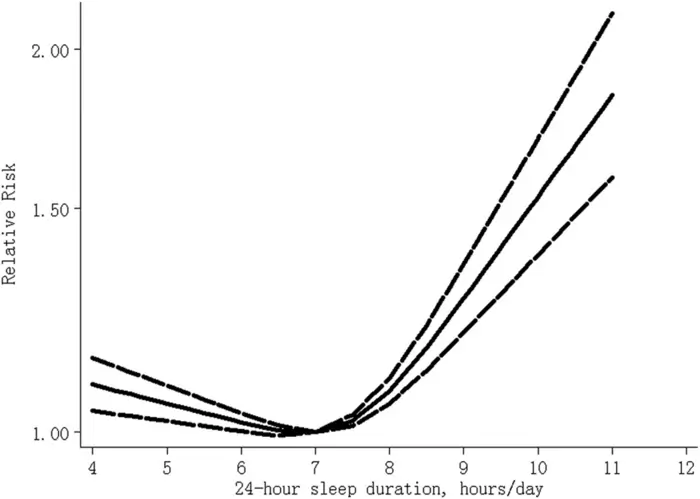
Image Source: Nature
Answer on question how to get better sleep quality comes out of understanding of sleep itself as it stands out as one of the most powerful yet overlooked ways to live longer. You don’t need to spend money, yet the health benefits are amazing.
“Sleep is perhaps the most underrated longevity intervention,” explains Dr. Matthew Walker, Professor of Neuroscience at UC Berkeley and author of “Why We Sleep.” “During deep sleep, the brain clears accumulated toxins including beta-amyloid, which is associated with Alzheimer’s disease when it builds up.”
Research published in the journal Sleep shows that consistently sleeping less than 7 hours per night is associated with a 12% increased risk of all-cause mortality. What makes sleep optimization particularly valuable as an affordable longevity hack is that it costs nothing to implement yet yields profound benefits.
Why sleep matters for longevity
The American College of Cardiology released a groundbreaking study. People who followed all five healthy sleep habits cut their risk of death by 30%.
Ideal sleep duration and timing
Regular sleep times matter just as much as duration.
Researchers found these five key parts of good sleep:
- Getting 7-8 hours of sleep each night
- Falling asleep easily (struggling no more than twice a week)
- Staying asleep all night
- Waking up feeling refreshed at least five days weekly
Not needing sleep medications [24]
Science behind sleep and aging
Poor sleep substantially speeds up biological aging.
Lab studies show how sleep controls immune function.
“The quality of your sleep matters as much as the quantity,” notes Dr. Phyllis Zee, Chief of Sleep Medicine at Northwestern University. “Simple environmental adjustments like keeping your bedroom between 65-68°F and minimizing light exposure can dramatically improve sleep architecture.”
Related post: How To Get Better Sleep: A Science-Backed Guide for Better Rest
Affordable tools to improve sleep
You don’t need fancy gadgets or pills to sleep better. Here are some proven, cheap ways to boost your sleep quality:
Make your bedroom sleep-friendly.
Learn more about science-backed sleep tips at the National Sleep Foundation (sleepfoundation.org), American Academy of Sleep Medicine (aasm.org), or CDC’s sleep hygiene portal (cdc.gov/sleep).
Science-Backed Sleep Optimization Technique:
The 10-3-2-1-0 method:
- No caffeine 10 hours before bed
- No food or alcohol 3 hours before bed
- No work 2 hours before bed
- No screens 1 hour before bed
- 0 times hitting snooze in the morning
“This method costs nothing to implement but can transform sleep quality by working with your body’s natural circadian rhythms,” explains Dr. Zee.
Cultivate optimism and social connection

Image Source: Upworthy
The best anti-aging strategies might be in your mind. Research shows that certain mental traits – especially optimism and social connections – can add years to your life without spending a dime.
Mental health and longevity connection
Your mind over body connection is a vital factor in your lifespan.
Good mental health does more than prevent illness – it helps you live longer.
“Chronic stress accelerates aging at the cellular level,” explains Dr. Elissa Epel, Professor at UCSF and co-author of “The Telomere Effect.” “Our research shows that stress shortens telomeres—the protective caps on our chromosomes that are a key marker of biological aging.”
This insight makes stress reduction a particularly powerful affordable longevity hack. A groundbreaking study published in the journal Translational Psychiatry demonstrated that chronic stress can reduce life expectancy by approximately 2.8 years.
Dr. Herbert Benson, founder of the Mind-Body Medical Institute at Harvard, notes: “The relaxation response—a physiological state opposite to the stress response—can be activated through simple, no-cost techniques practiced for just 10-20 minutes daily.”
Evidence-Based Stress Reduction Technique:
The 4-7-8 breathing method:
- Exhale completely through your mouth
- Inhale quietly through your nose for 4 seconds
- Hold your breath for 7 seconds
- Exhale completely through your mouth for 8 seconds
- Repeat 3-4 times
“This technique activates the parasympathetic nervous system, effectively switching off the stress response,” explains Dr. Benson. “Regular practice has been shown to reduce cortisol levels and improve heart rate variability—both important markers of longevity.”
Related post: Mind Over Body: The Science Behind How Your Thoughts Control Aging
How optimism affects aging
Staying positive about the future is a powerful way to live longer. The largest longitudinal study of over 150,000 women from different racial backgrounds found something remarkable.
Optimism’s benefits work for everyone.
More evidence comes from another study.
- Heart disease and stroke
- Cancer mortality (17% reduced risk)
Cardiovascular mortality (20% lower risk)[6]
Science behind social connection and lifespan
Scientists have found that social connections might be one of the strongest factors in living longer.
“The impact of social isolation on mortality risk is comparable to smoking 15 cigarettes a day,” states Dr. Julianne Holt-Lunstad, Professor of Psychology at Brigham Young University. “Our meta-analysis of 148 studies found that strong social connections increase survival odds by 50%.”
This makes social connection one of the most powerful affordable longevity hacks available. The Harvard Study of Adult Development, one of the longest-running studies on happiness and health, found that the quality of relationships at age 50 was a better predictor of health outcomes than cholesterol levels.
A complete study followed participants for 12.4 years.
Dr. Robert Waldinger, director of the Harvard study, explains: “It’s not just the number of friends you have or whether you’re in a committed relationship. It’s the quality of your close relationships that matters. Living in conflict is bad for your health, while warm relationships are protective.”
More socializing means more benefits. Research in the Journal of Epidemiology and Community Health showed that even occasional social activity helped people live longer.
Research-Backed Social Connection Strategy:
The 2-2-2 method:
- Connect with a close friend or family member 2 times per day
- Engage in a meaningful group activity 2 times per month
- Volunteer or participate in community service 2 times per year
“This structured approach ensures regular meaningful connection across different relationship types,” notes Dr. Waldinger. “The key is quality over quantity.”
Related post: The Surprising Science: How Friendships Can Extend Your Life Span
Budget-friendly ways to build social ties
You don’t need expensive memberships to build meaningful connections. Here are some proven, free ways to connect with others:
Look for free admission days at cultural spots.
Help your community to make meaningful connections. Start a neighborhood cleanup crew with just trash bags and gloves.
Exercise gives you two ways to live longer.
To learn more about making connections on a budget, check out the National Institute on Aging (nia.nih.gov), AARP Foundation (aarpfoundation.org), or Connect2Affect (connect2affect.org).
Avoid expensive tests and focus on how you feel
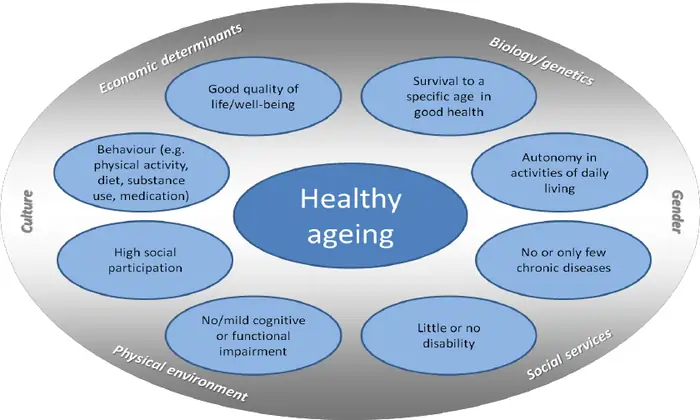
Image Source: ResearchGate
Scientific evidence questions the value of expensive biological age tests that cost around $300 in the longevity market.
Why biological age tests are unreliable
Scientists designed biological age tests and epigenetic clocks to study large groups, not individuals. This basic flaw guides users toward mixed results.
How to self-assess your health
You can learn about your health without spending money on lab tests.
Science-backed signs of healthy aging
Functional tests give solid proof of your biological vitality.
Economical self-monitoring strategies
Many tools can help you track your health without breaking the bank:
Fitness trackers/smartwatches: Monitor heart rate, sleep patterns, and physical activity[15] Mobile health apps: Track dietary intake, exercise, and mental wellbeing[15] Home blood pressure monitors: If you have cardiovascular concerns[15]
Regular checkups paired with these available technologies create a balanced way to monitor your longevity progress.
The National Institute on Aging (nia.nih.gov), American Geriatrics Society (americangeriatrics.org), and Mayo Clinic’s Healthy Aging section (mayoclinic.org/healthy-lifestyle/healthy-aging) are great resources to learn more about self-assessment.
Comparison Table
| Longevity Hack | Key Benefits | Implementation Cost | Time Investment | Scientific Evidence | Recommended Frequency/Duration |
|---|---|---|---|---|---|
| Exercise regularly | • Adds 7-10 years to lifespan • 24% lower death rate • Improves brain function • Makes movement easier | Low cost (simple equipment or free) | 150-300 minutes weekly | Very Strong (multiple major studies over 25+ years) | • 150 min moderate or 75 min vigorous activity weekly • Strength training 2x/week • Balance activities often |
| Mediterranean Diet | • Adds up to 10 years to life expectancy • 23% lower overall death rate • 20% lower heart-related deaths | Moderate (simple groceries) | Daily meal planning and prep | Very Strong (largest longitudinal studies with 541,000+ participants) | Daily focus on whole foods and diet patterns |
| Quality Sleep | • 18% lower risk of death • Men live 4.7 years longer • Women live 2.4 years longer | Free | 7-8 hours nightly | Strong (multiple clinical studies) | • 7-8 hours each night • Same sleep/wake times • Feel rested 5+ days/week |
| Optimism & Social Connection | • Live 5.4% longer (4.4 years) • 23% lower death risk • Half the risk of death | Free | Varies (regular friend time) | Strong (studies with 150,000+ participants) | Daily positive outlook and regular time with friends |
| Focus on How You Feel | • Saves money on unnecessary tests • Shows overall health better • More reliable than age tests | Free to Low Cost | Regular self-checks | Moderate (new research) | Daily health checks and regular doctor visits |
Affordable Technology and Tools for Tracking Longevity Progress
While the longevity hacks we’ve discussed don’t require expensive equipment, tracking your progress can provide motivation and accountability. Fortunately, there are numerous affordable tools that can help you monitor key biomarkers and habits.
Free and Low-Cost Tracking Apps
“Technology has democratized health tracking,” explains Dr. David Perlmutter, neurologist and author of “Brain Wash.” “Smartphones now contain sensors that would have cost thousands of dollars just a decade ago.”
Here are some recommended free and low-cost tracking tools:
- Sleep Tracking
- Sleep Cycle (Free basic version): Analyzes sleep patterns using your phone’s microphone
- SleepScore (Free basic version): Provides detailed sleep quality metrics and improvement recommendations
- Movement Monitoring
- Google Fit/Apple Health (Free): Tracks steps, active minutes, and estimated calories
- Map My Walk (Free): Records walking routes and progress over time
- Nutrition Tracking
- Cronometer (Free basic version): Tracks not just calories but also micronutrients
- Daily Dozen (Free): Helps implement a Mediterranean-style eating pattern
- Stress Management
- Insight Timer (Free): Offers thousands of guided meditations and breathing exercises
- Breathe2Relax (Free): Guides diaphragmatic breathing for stress reduction
- Social Connection
- Meetup (Free): Helps find local groups based on interests
- Volunteer Match (Free): Connects you with volunteer opportunities in your community
“The key is finding tools that reduce rather than increase stress,” notes Dr. Elizabeth Blackburn, Nobel Prize winner for her work on telomeres. “Technology should simplify tracking, not become another source of anxiety.”
Simple DIY Tracking Methods
Not all tracking requires technology. Consider these low-tech approaches:
- Sleep Journal: Track bedtime, wake time, and subjective sleep quality on a simple calendar
- Gratitude Practice: Record three things you’re grateful for daily to boost well-being
- Connection Calendar: Mark days when you had meaningful social interactions
- Movement Tally: Use a simple counter to track daily movement sessions
“Sometimes the simplest tracking methods are the most sustainable,” explains Dr. Perlmutter. “The best tracking system is the one you’ll actually use consistently.”
Tailoring Longevity Hacks to Your Age Group
While these five longevity hacks benefit everyone, their implementation and impact can vary by age:
In Your 30s
Focus on establishing foundational habits. Your body is still highly resilient, making this the ideal time to:
- Develop consistent exercise routines that include both strength and aerobic training
- Master Mediterranean diet principles before metabolic flexibility decreases
- Establish solid sleep hygiene practices to protect cognitive function
In Your 40s and 50s
This is a critical window where prevention has maximum impact:
- Increase strength training to combat natural muscle loss (1-2% per year after 40)
- Emphasize anti-inflammatory foods in your Mediterranean approach
- Prioritize stress reduction and social connection as career and family demands peak
In Your 60s and Beyond
Focus on maintenance and targeted interventions:
- Incorporate balance exercises to prevent falls (a leading cause of disability)
- Emphasize protein intake (1-1.2g per kg of body weight) to preserve muscle mass
- Dedicate more time to social activities as retirement may reduce natural social interactions
Research shows that people who started exercising after age 45 still had a 24% lower mortality rate than those who remained inactive, proving it’s never too late to begin.
Conclusion
Scientific evidence points to a surprising truth: you don’t need expensive supplements, state-of-the-art treatments, or advanced technology to live longer. Research shows that basic lifestyle changes give you the best results for extending your lifespan and staying healthy. Harvard Medical School’s Dr. David Sinclair puts it simply: “The things that work best are actually the simplest and available to all of us.”
These five science-backed strategies work together to curb biological aging in multiple ways. Exercise helps prevent age-related muscle loss and improves heart health. A Mediterranean diet gives your body essential nutrients that lower inflammation and oxidative stress.
Good sleep allows your cells to repair themselves. Staying optimistic and connected with others boosts your immune system. Regular self-checks help you track your progress.[1]
These approaches offer a unique advantage – they’re easy to access. The booming longevity industry keeps pushing costly treatments, but these proven strategies cost little or nothing. Studies reveal that people who follow just three of these habits have about 30% lower death risk than those who follow none [112].
The American Heart Association’s research shows an interesting finding: you don’t have to be perfect. Following these healthy habits moderately reduces death risk almost as well as following them strictly [113]. This means even small improvements in these five areas can substantially extend your life.
Start with one small change instead of trying to overhaul your entire lifestyle at once. Try a daily 30-minute walk, add colorful vegetables to your meals, stick to a regular bedtime, call a friend every week, or pay attention to your energy levels. Small steps add up to big results when you stick with them.
The longevity market keeps growing rapidly, but scientists already know what works best to extend life. These five approaches have proven themselves through careful scientific testing and showed consistent results in people of all backgrounds.
You can learn more about healthy aging from trusted sources like the National Institute on Aging (nia.nih.gov), American Federation for Aging Research (afar.org), and WHO’s healthy aging portal (who.int/initiatives/decade-of-healthy-aging). These resources give detailed explanations about putting these life-extending strategies into practice.
FAQs
What is the most effective tip for increasing longevity?
Regular physical activity is considered the most powerful longevity hack. Studies show that consistent exercise can add 7-10 years to your lifespan and reduce the risk of premature death by up to 24%.
How can I improve my chances of living longer through diet?
Adopting a Mediterranean-style diet rich in vegetables, fruits, whole grains, legumes, and healthy fats like olive oil can significantly increase life expectancy. Research suggests this eating pattern may add up to 10 years to your life when started early.
How does sleep affect longevity?
Consistent, quality sleep is crucial for longevity. Getting 7-8 hours of sleep nightly and maintaining regular sleep patterns can reduce the risk of death by 18% and increase life expectancy by several years.
What role do mental health and social connections play in extending lifespan?
Cultivating optimism and maintaining strong social connections are powerful longevity factors. Optimistic individuals tend to live 4-13 years longer, while strong social integration is associated with a 50% reduced mortality risk.
Are expensive longevity tests and treatments necessary for healthy aging?
Expensive biological age tests and treatments are not essential for healthy aging. Instead, focus on how you feel, maintain regular physical activity, eat a healthy diet, get quality sleep, and nurture social connections. These affordable strategies have strong scientific evidence supporting their effectiveness in promoting longevity.
How quickly can I expect to see benefits from these longevity hacks?
While cellular changes begin immediately, visible and measurable benefits typically appear within different timeframes:
Mediterranean Diet: Improvements in inflammatory markers can be detected within 2-3 weeks, while cardiovascular benefits may take 3-6 months to become measurable.
Regular Movement: Mood and energy improvements often appear within days, while changes in fitness markers typically require 4-8 weeks of consistent practice.
Sleep Optimization: Many people report improved mental clarity and energy after just 3-5 days of optimized sleep.
Stress Reduction: Acute stress reduction occurs during practice, while lasting changes to baseline stress levels typically require 4-8 weeks of regular practice.
Social Connection: Emotional benefits can be immediate, while longevity impacts accumulate over years.
Dr. Valter Longo notes: “Longevity interventions work like compound interest—small daily actions create exponential benefits over time.”Do I need to implement all five hacks simultaneously?
Research from behavioral science shows that implementing one habit at a time has an 80% success rate, while trying multiple changes simultaneously drops success rates to below 35%.
“Start with the hack that feels most accessible to you,” recommends BJ Fogg, PhD, founder of the Behavior Design Lab at Stanford University. “Once that becomes automatic, typically after 2-3 weeks of consistent practice, add another.”
Many experts recommend this sequence for most people:
1. Sleep optimization (improves willpower for other changes)
2. Movement (boosts energy and mood)
3. Stress reduction (improves decision-making)
4. Mediterranean diet (easier with improved willpower)
5. Social connection (can be integrated throughout)Are these hacks effective for all age groups?
Yes. While research shows benefits across age groups, the impact is most pronounced when started earlier.
“It’s never too early and never too late to implement these practices,” explains Dr. Luigi Ferrucci of the National Institute on Aging. “We see benefits in study participants ranging from their 20s to their 90s, though the specific mechanisms and magnitude of effects may vary.”
Studies of Blue Zone populations (regions with exceptional longevity) demonstrate that these practices are most effective when maintained throughout life but still provide benefits when adopted at any age.
How do these affordable hacks compare to expensive longevity treatments?
“Many expensive longevity treatments attempt to mimic the biological effects that these natural interventions create,” explains Dr. David Sinclair, Professor of Genetics at Harvard Medical School.
For example:
Expensive NAD+ supplements aim to improve mitochondrial function, which regular exercise does naturally
Costly senolytic drugs target senescent cells, which the Mediterranean diet helps prevent from forming
Premium meditation retreats activate the same parasympathetic nervous system as simple breathing techniques“The affordable approaches often provide more comprehensive benefits because they work through multiple pathways simultaneously,” notes Dr. Sinclair.
Can these hacks reverse existing age-related conditions?
While results vary by individual and condition, research shows promising effects:
– A two-year study published in the journal Neurology found that the Mediterranean diet combined with regular physical activity slowed cognitive decline in participants already showing early signs of impairment.
– Research from the University of California found that stress reduction techniques improved telomere maintenance in individuals with existing telomere shortening.
– A study in the Journal of the American College of Cardiology demonstrated that sleep optimization improved markers of cardiovascular health in participants with existing hypertension.“These interventions can often slow progression and sometimes partially reverse certain age-related changes,” explains Dr. Epel. “However, they work best as preventive approaches.”
How can I stay motivated to maintain these habits long-term?
Behavioral science research identifies several effective strategies:
Identity-Based Habits: Frame changes as expressions of who you want to be (“I’m someone who prioritizes sleep”) rather than what you want to achieve.
Environment Design: Make healthy choices easier by modifying your environment (keep walking shoes by the door, remove processed foods from your home).
Social Accountability: Share your intentions with others or find a “habit partner” to practice with.
Progress Tracking: Use simple methods to monitor your consistency, creating a visual record of your “streak.”
Habit Stacking: Attach new habits to existing routines (e.g., practice breathing exercises while waiting for coffee to brew).
“The key is making these practices sustainable rather than perfect,” notes Dr. Michelle Segar, Director of the Sport, Health, and Activity Research and Policy Center at the University of Michigan. “Consistency over time matters more than perfection on any given day.”
[1] – https://mcpress.mayoclinic.org/healthy-aging/a-surprising-key-to-healthy-aging-strong-social-connections/
[2] – https://www.ama-assn.org/delivering-care/public-health/massive-study-uncovers-how-much-exercise-needed-live-longer
[3] – https://www.dmu.edu/blog/2020/12/sleep-quality-and-health-aging/
[4] – https://www.cdc.gov/physical-activity-basics/guidelines/older-adults.html
[5] – https://www.nytimes.com/2023/12/19/well/live/biological-age-testing.html
[6] – https://www.health.harvard.edu/blog/if-you-are-happy-and-you-know-it-you-may-live-longer-2019101618020
[7] – https://www.nhs.uk/live-well/exercise/physical-activity-guidelines-older-adults/
[8] – https://www.aarp.org/health/healthy-living/exercises-to-live-longer/
[9] – https://www.sleepfoundation.org/best-sleep-products
[10] – https://hsph.harvard.edu/news/exercising-more-than-recommended-could-lengthen-life-study-suggests/
[11] – https://www.sleepfoundation.org/sleep-news/good-sleep-linked-to-longer-life
[12] – https://news.harvard.edu/gazette/story/2024/06/women-who-follow-mediterranean-diet-live-longer/
[13] – https://give.brighamandwomens.org/mediterranean-diet-longer-life/
[14] – https://pmc.ncbi.nlm.nih.gov/articles/PMC5902736/
[15] – https://insights.avea-life.com/healthy-ageing/biohacking/bryan-johnson-blueprint/
[16] – https://www.mediterraneanliving.com/cheap-healthy-meals-from-the-mediterranean/
[17] – https://www.eatingwell.com/article/7834551/30-day-mediterranean-budget-meal-plan/
[18] – https://pmc.ncbi.nlm.nih.gov/articles/PMC8658028/
[19] – https://mcpress.mayoclinic.org/healthy-aging/how-quality-sleep-impacts-your-lifespan/
[20] – https://www.acc.org/About-ACC/Press-Releases/2023/02/22/21/35/Getting-Good-Sleep-Could-Add-Years-to-Your-Life
[21] – https://www.nhlbi.nih.gov/health/sleep/how-much-sleep
[22] – https://pmc.ncbi.nlm.nih.gov/articles/PMC6267703/
[23] – https://www.sleepfoundation.org/aging-and-sleep
[24] – https://www.cnn.com/2023/02/23/health/sleep-longevity-study-wellness
[25] – https://pmc.ncbi.nlm.nih.gov/articles/PMC9325170/
[26] – https://www.longevitytech.fund/en/home/post/mental-health-an-overlooked-longevity-factor
[27] – https://www.nia.nih.gov/news/optimism-linked-longevity-and-well-being-two-recent-studies
[28] – https://pmc.ncbi.nlm.nih.gov/articles/PMC4725506/
[29] – https://pmc.ncbi.nlm.nih.gov/articles/PMC7664314/
[30] – https://www.health.harvard.edu/mind-and-mood/even-a-little-socializing-is-linked-to-longevity
[31] – https://connect2affect.org/affordable-ways-to-connect/
[32] – https://www.humangood.org/resources/senior-living-blog/easy-ways-to-cultivate-social-connectedness
[33] – https://www.zest.science/blog/functional-tests-to-assess-your-longevity
[34] – https://www.ncbi.nlm.nih.gov/books/NBK71306/
[37] – https://www.health.harvard.edu/staying-healthy/exercise-and-aging-can-you-walk-away-from-father-time
[38] – https://pmc.ncbi.nlm.nih.gov/articles/PMC7431070/
[39] – https://www.seniorlifestyle.com/resources/blog/7-best-exercises-for-seniors-and-a-few-to-avoid/
[40] – https://pmc.ncbi.nlm.nih.gov/articles/PMC4340807/
[41] – https://www.medicalnewstoday.com/articles/low-impact-exercises-for-seniors
[42] – https://www.nytimes.com/2025/04/10/well/longevity-low-cost-tips.html
[43] – https://www.healthline.com/health/low-impact-exercises-for-seniors
[44] – https://www.nih.gov/news-events/nih-research-matters/little-exercise-might-lengthen-life
[45] – https://moradaseniorliving.com/senior-living-blog/affordable-active-aging-tips-for-staying-fit-without-breaking-the-bank/
[46] – https://zionhealthshare.org/blog/budget-friendly-health-tips-you-need-affordable-ways-to-stay-healthy/
[47] – https://www.silversneakers.com/
[48] – https://www.eatingwell.com/article/7996072/ways-the-mediterranean-diet-helps-you-live-longer-according-to-a-dietitian/
[49] – https://www.cnn.com/2024/05/31/health/mediterranean-diet-women-early-death-risk-wellness
[50] – https://www.health.harvard.edu/blog/a-practical-guide-to-the-mediterranean-diet-2019032116194
[51] – https://extension.psu.edu/mediterranean-eating-on-a-budget
[52] – https://hsph.harvard.edu/news/nutritious-diet-in-midlife-linked-to-healthier-aging/
[53] – https://www.mayoclinic.org/healthy-lifestyle/nutrition-and-healthy-eating/in-depth/mediterranean-diet/art-20047801
[54] – https://thedomesticdietitian.com/10-healthy-affordable-mediterranean-diet-hacks/
[55] – https://www.olivetomato.com/6-mediterranean-food-swaps-that-will-instantly-make-your-diet-healthier/
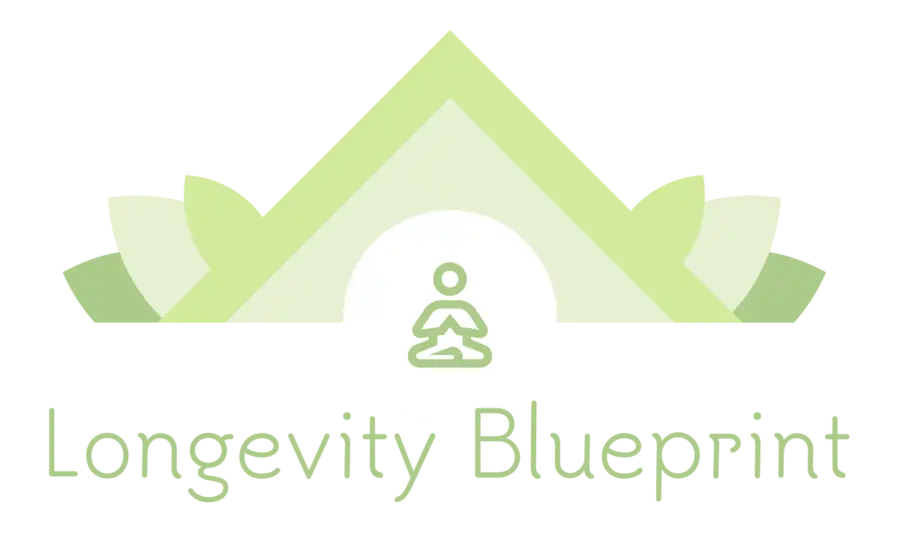
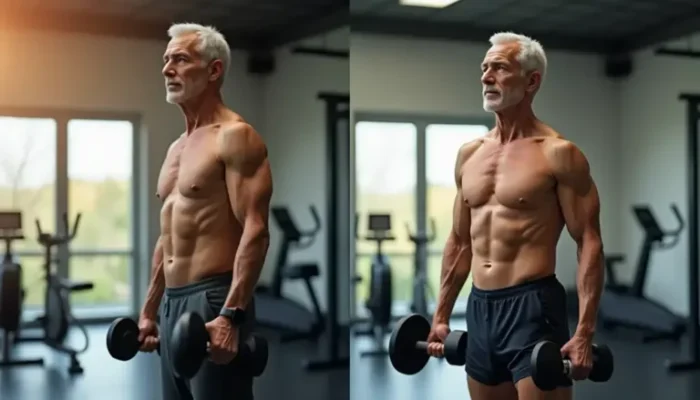
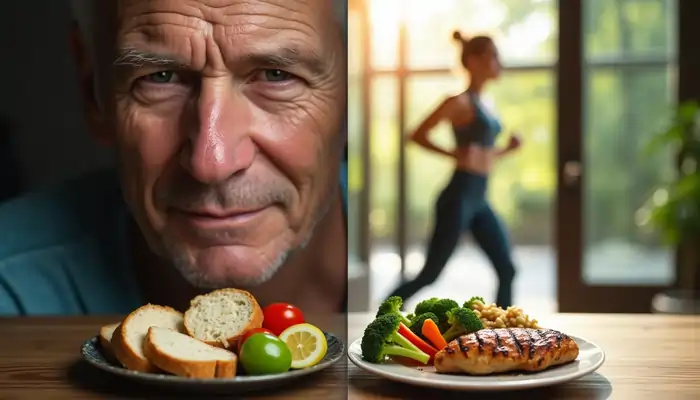

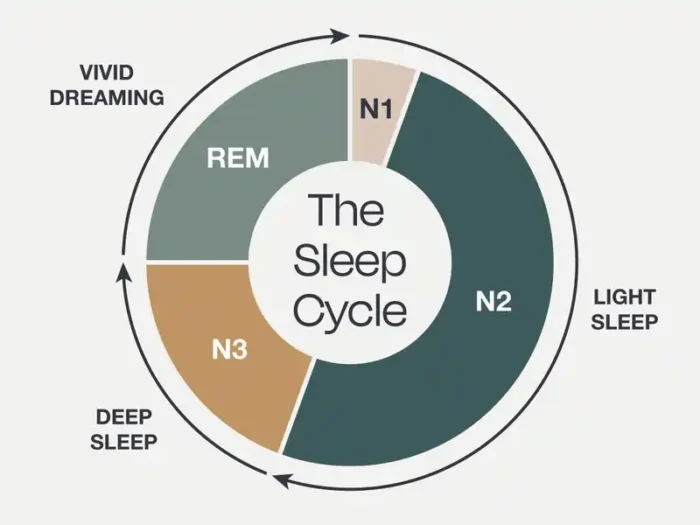
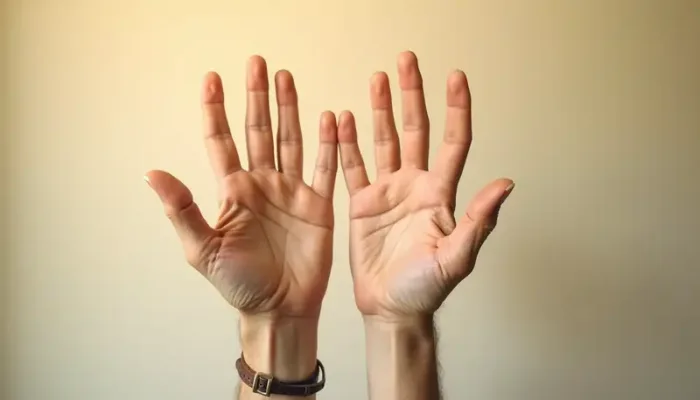

![NMN vs NR: Which Anti-Aging Supplement Actually Works? [2025 Science] 25 NMN vs NR](https://longevityblueprinthealth.com/wp-content/uploads/2025/05/810384d5-0f16-477a-abe0-0872e930cf72-1.webp)
